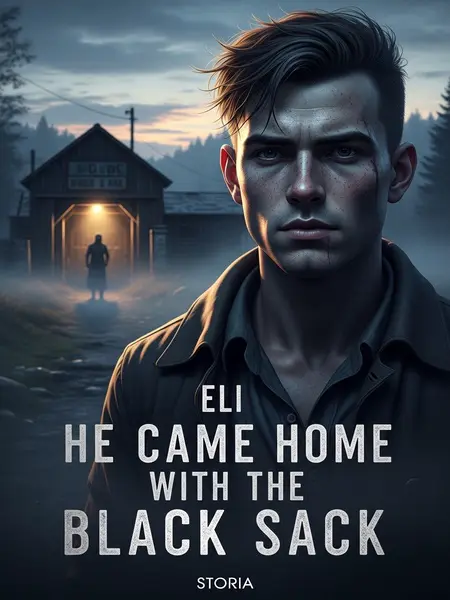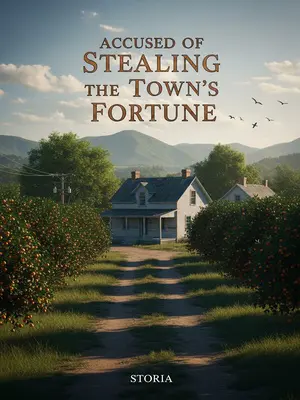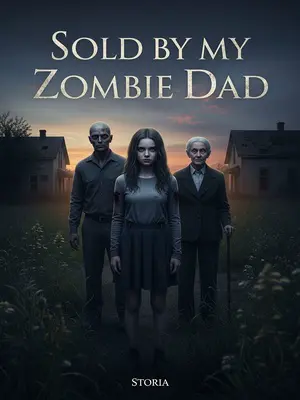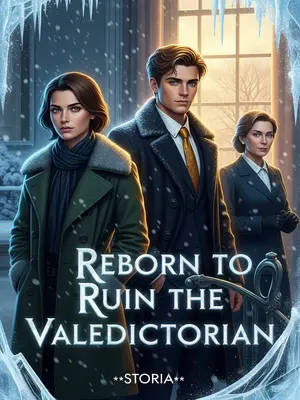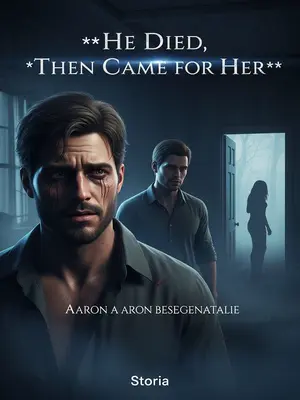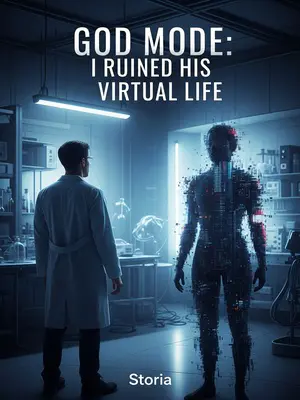Chapter 2: The Man With the Black Sack
But first, I sorted through two parts of my grandfather's notebook and posted them on Reddit, hoping someone else had seen something like this.
I sat at my desk, hands shaking as I typed. Maybe someone out there would recognize these stories, or at least believe me. The internet felt like the only place left to turn.
[Notebook One]
May 10th, 1982.
Life keeps getting tougher.
Bills piling up on the kitchen counter, the fridge nearly empty. Every day, it seemed like the world was closing in a little more. I could feel the weight of it pressing down on me. Desperation sets in when you can’t even buy bread.
The kids at home are always asking for snacks, and Maribel keeps getting thinner.
Maribel tries to hide it, but I see her skipping meals, giving the last piece of bread to the kids. The guilt gnaws at me. I want to do better for them.
Earl said the mine is hiring, and the pay's good.
He came by the house, muddy boots on my porch, and said, “It’s steady work, Jack. Pays better than anything else around here.”
But folks around here all say the mine's haunted, and underground it connects to the Devil's Gate. I never believed in that stuff, but a part of me wondered—what if they’re right?
People talk. At the diner, at church, in the barbershop. They say the old shaft goes deeper than it should, that sometimes you hear voices echoing up when the wind’s right.
I've always been skittish.
Never liked the dark, or small spaces. The idea of being trapped underground makes my skin crawl. Still, I can’t let fear put my family on the street.
But thinking of Maribel and the kids, I decided to sign up!
I paused, thinking of Maribel and the kids. I swallowed my nerves and put my name down. For them, I’d do anything. Even go where I swore I never would.
[Notebook Two]
May 23rd.
Man, I've only been here a few days, and something weird already happened!
It’s not like I was expecting anything good, but this was something else. The air in the mine feels thick, like it’s pressing on your chest. You can’t ever quite catch your breath.
That day, when we were leaving the mine at shift change, the foreman told me to do a headcount.
“Make sure nobody’s left behind,” he said, slapping the clipboard into my hand. His voice echoed off the tunnel walls.
There are always twenty on a shift.
That’s the rule. Twenty in, twenty out. No exceptions.
I was exhausted, so I just counted quick.
My eyes were gritty with coal dust, my arms heavy. I just wanted to get home, but I went down the line, counting heads.
Twenty-one.
My heart skipped. I blinked, thinking I’d miscounted. But the number stuck in my mind like a splinter.
That couldn't be right.
I frowned, rubbing my eyes. Maybe I was just tired. I counted again, slower this time.
So I pulled myself together and counted again. Still twenty-one. My stomach dropped—what the hell?
A cold sweat broke out on my neck. I felt the hair on my arms stand up.
Weird, so why the hell was there an extra guy?
I glanced down the line, searching for a new face, but everyone looked the same—faces smudged with coal, eyes tired.
The foreman slapped me with the roster and said, real sarcastic:
"Didn't you say you finished high school? Can't even count?"
He grinned, but there was no humor in it. The guys snickered behind their hands. I felt my cheeks burn.
Then he shoved the roster at me and told me to call roll.
I cleared my throat and started down the list, trying not to let my voice shake.
I called out a name that was crossed off:
"Frankie Morales."
A hush fell. For a split second, everyone stared at me. Then, as if on cue, the guys burst out laughing.
Frankie Morales had died in a cave-in a few days ago.
His name was still fresh in everyone’s mind. The laughter sounded forced, almost nervous.
The foreman was just about to lay into me when, suddenly, from the end of the line, a sharp voice answered:
"Here..."
The voice was thin, almost reedy, but it cut through the laughter like a knife. The whole group fell silent.
Everyone went dead quiet. You could’ve heard a pin drop. I felt my heart hammering in my chest.
We all looked toward the voice and saw a tall, thin man standing at the very end of the line.
He was taller than the rest, his shoulders hunched. He looked out of place, like he’d wandered in from somewhere else.
His hard hat was falling apart, and he had a black burlap sack covered in coal dust pulled over his head.
The sack sagged over his face, dust clinging to every fold. It looked like something out of a nightmare. With every breath, the bag puffed in and out, making a scratchy sound.
Then that sharp voice spoke again:
"Ah, it's still better out here."
The words sent a chill down my spine. There was something off, something wrong in the way he said it. My hands clenched into fists, trying not to shake.
The workers panicked and scattered all at once.
